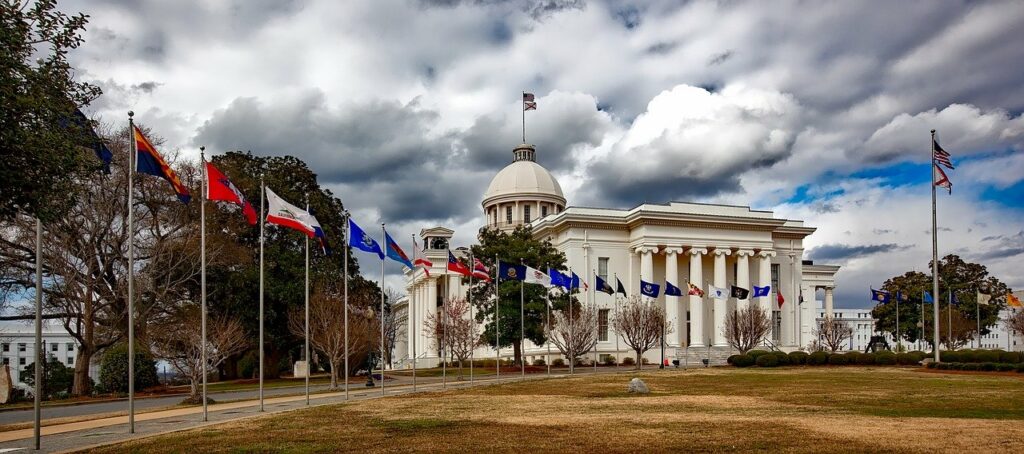With a shocking ruling that stunned marijuana advocates across the country, the Mississippi Supreme Court recently overturned Initiative 65, which would have established a robust medical marijuana program in the Magnolia State.
Support for Medical Marijuana under Initiative 65
The Court’s 6-3 decision invalidated a citizen-led initiative effort that was put on the ballot with over 214,000 signatures, and overwhelmingly approved by the people with 74% of the vote. Such widespread support for legal cannabis is unheard of in the south, but the shouts of Mississippi voters fell on deaf ears in the state Supreme Court.
Ken Newburger, Executive Director for the Mississippi Medical Marijuana Association lamented, “The Mississippi Supreme Court just overturned the will of the people of Mississippi. Patients will now continue the suffering that so many Mississippians voted to end.”
Initiative 65 had ubiquitous voter support and would have created an effective medical marijuana program with statewide patient access. Established business owners and startup entrepreneurs were moving forward with obtaining marijuana facility licenses, and the state regulatory agency was frequently releasing rules and regulations that would be implemented in the program. With all this forward momentum and widespread support, who challenged the initiative in the first place?
Mayor Mary of Madison, Marijuana Foe
Mary Hawkins Butler— widely known as “Mayor Mary” — is one of the longest-serving mayors in United States history. She’s ruled Madison (a small suburb of Jackson) with an iron fist for nearly 30 years, while quarrelling with other city officials, dealing with family financial scandals, and forcing Madison business owners to conform to her own cookie-cutter idealized storefront specifications. She consolidates as much local control as possible. She also hates weed.
Her out-of-touch views on marijuana are akin to the film, Reefer Madness, as she clearly demonstrated her complete misunderstanding of medical marijuana and the potential positive economic and public health benefits it could bring to her community. While announcing her lawsuit against Initiative 65, she characterized her actions as fighting to keep “pot shops” out of her city by stating, “We were looking at what standing we could have. What we could do regarding protecting our citizens, our schools, our plans and the future of Madison. Cities won’t be allowed to zone where the pot shops could locate. They’ve got a blank check to do what they want in zoning our communities.”
Medical Marijuana and the Mississippi Initiative Process
Clearly Hawkins Butler’s problems with the initiative stem from misunderstanding marijuana and losing complete zoning control over medical marijuana dispensary facilities. Yet her argument in the lawsuit called out a technicality in the initiative process by deeming the entire process “broken”. She asserted that the signature-gathering requirement is mathematically impossible with four congressional districts, and the initiative certification is based on the state’s previous five congressional districts and not the current four districts.
Unfortunately for Mississippi patients and supporters of the ballot initiative process, the state Supreme Court agreed with Hawkins Butler:
“Whether with intent, by oversight, or for some other reason, the drafters of section 273(3) wrote a ballot-initiative process that cannot work in a world where Mississippi has fewer than five representatives in Congress,” Justice Josiah Coleman wrote for the majority in the ruling Friday. “To work in today’s reality, it will need amending — something that lies beyond the power of the Supreme Court.”
The justices ultimately ruled that Initiative 65 was void because the state’s initiative process is outdated. Mississippi had 5 congressional districts when the initiative process was written into the state constitution as Section 273 in the 1990’s. The law required petitioners to get one-fifth of their signatures from each congressional district. But the state shrunk to four districts after the 2000 census, and language in the law was never updated.
The state Supreme Court ruling has wider implications than medical marijuana in Mississippi. Since the justices decided the outdated state initiative process was unconstitutional, their decision also calls into question other state ballot initiatives, including previously passed initiatives and those currently engaged in the signature-gathering process. One initiative approved by voters in November would have removed the Confederate flag imagery from the Mississippi state flag. Unfortunately now Mississippi will remain in the minority of states without medical marijuana and remain in the past by being represented as the land of dixie.
Additional Resources:
At The Weed Blog, we strive to produce the latest online news resources regarding marijuana. We also review various strains of cannabis or other edible counterparts. We are committed to helping you find valuable information about marijuana on our website. With marijuana laws constantly changing, learn from us what you can do to promote activism in your area. Otherwise, consider these other top-tier articles regarding cannabis:
Medical Pot Bill Dies, Setting Up Nebraska Ballot Drive
Minnesota House Passes Adult-Use Marijuana Bill
How Cannabis Companies Use Social Media Platforms Like TikTok to Promote Their Brands





